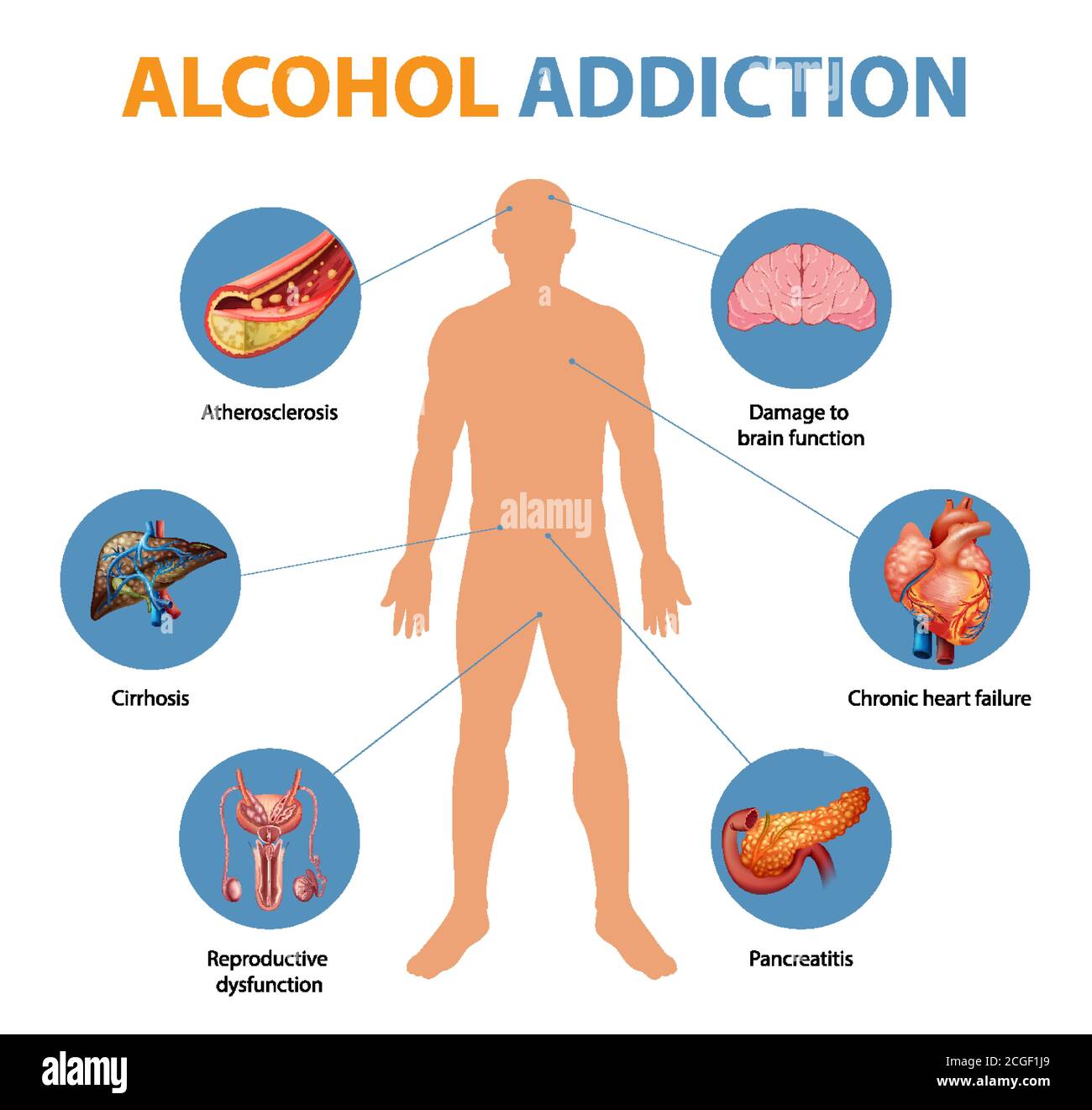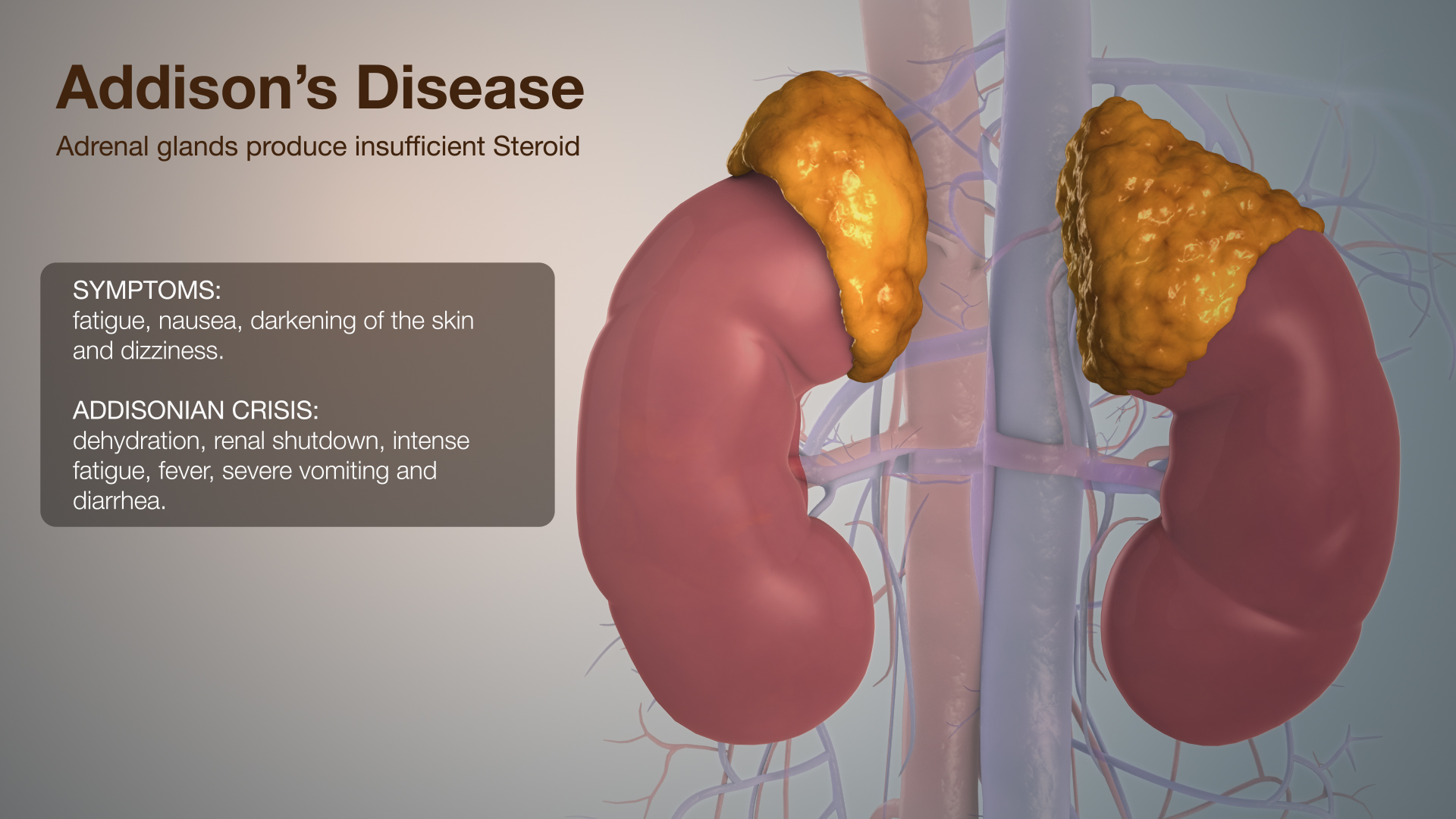Addison Bjorn Iowa - Understanding Adrenal Health
If you’ve found yourself looking up terms like Addison Bjorn Iowa, it’s quite possible you’re trying to piece together information about a health condition known as Addison’s disease. This particular challenge, often called primary adrenal insufficiency, involves your body’s inability to make enough of certain important hormones. It’s a situation that, well, really affects how you feel day to day, and getting a good handle on what it means can make a big difference.
You see, this condition is all about tiny glands sitting just above your kidneys, which are, you know, pretty vital for keeping things running smoothly. When these adrenal glands aren't quite pulling their weight, they don't produce enough cortisol, and sometimes not enough aldosterone either. These aren't just fancy words; they're substances that help control everything from your energy levels to your blood pressure, so it’s, like, a pretty big deal when they’re in short supply.
There’s also a related issue, secondary adrenal insufficiency, which, you know, has different roots. Both conditions can, in some respects, throw your body out of balance. It's really about understanding these differences and knowing what to look out for, especially since symptoms can, you know, sometimes get worse very, very quickly, signaling a situation that needs immediate attention.
Table of Contents
- What Exactly is Addison's Disease, Anyway?
- Are There Different Kinds of Adrenal Issues?
- When Things Take a Sudden Turn - The Addisonian Crisis
- How Do Folks Get Help for Addison's Disease?
- What Might You Notice If You Have Addison's?
- What About Other Conditions That Seem Similar?
- How Does a Doctor Figure Out If It's Addison's?
- Where Can People Find Specialized Support?
What Exactly is Addison's Disease, Anyway?
So, you might hear this condition called Addison’s disease, but it also goes by another name: primary adrenal insufficiency. It’s, you know, basically the same thing. What that means, in simpler terms, is that your body’s adrenal glands, which are these small but mighty little organs, aren’t really doing their job of making enough of certain hormones. These glands, you see, sit right above your kidneys, sort of like little caps, and they’re responsible for producing some truly important chemical messengers that help keep your whole system running smoothly. When we talk about primary insufficiency, it means the problem, or the main reason for the issue, is actually with the glands themselves. They’re just not, well, producing what they should. This can lead to a whole host of feelings and bodily changes that can make everyday life feel quite a bit harder, almost like your internal engine is sputtering a little. It’s, you know, a situation that needs attention, because those hormones really do control a lot of what goes on inside you.
Specifically, the adrenal glands, when affected by Addison’s disease, tend to make too little cortisol. And, you know, often they’re also making too little aldosterone. These aren't just obscure substances; they’re actually quite busy. Cortisol, for instance, helps your body handle stress, manages how your body uses carbohydrates and fats, and even keeps inflammation in check. Aldosterone, on the other hand, helps keep your blood pressure steady and balances the salt and water in your body. So, you can imagine, when there’s not enough of these, your body can feel, well, pretty out of sorts. It’s like trying to run a complex machine with some very important parts missing, or at least not working at full capacity, which is, in some respects, what’s happening internally.
Are There Different Kinds of Adrenal Issues?
Yes, there are, actually. While Addison’s disease is known as primary adrenal insufficiency, there’s a related condition called secondary adrenal insufficiency. These two, you know, have different causes, which is a key point to keep in mind. With primary adrenal insufficiency, the problem really lies with the adrenal glands themselves; they’re simply not producing enough hormones. It’s like the factory itself is having trouble. But with secondary adrenal insufficiency, the issue isn't directly with the adrenal glands. Instead, the problem is with the pituitary gland, a small gland located in your brain. This gland makes a hormone that tells the adrenal glands what to do. So, if the pituitary isn't sending the right signals, or enough signals, the adrenal glands won’t produce enough hormones, even if they’re perfectly capable of doing so. It’s more like a communication breakdown, you know, rather than a factory fault.
- Modern Mullet Haircut
- Uniform Connection In Lincoln Ne
- Chilis Create A Pepper
- Hong Kong International Airport Photos
- Paaaaaaaa
Understanding these different causes is, well, pretty important for getting the right kind of care. Because the root of the problem is different, the approach to helping someone feel better might be a little different too. It’s about figuring out where the signal is getting lost or where the production line is faltering. This distinction helps medical professionals make sure they’re addressing the actual source of the imbalance in your body’s hormone levels. So, while both conditions result in too few of those important steroid hormones, how you get there is, you know, quite different, and that distinction really matters for proper care.
When Things Take a Sudden Turn - The Addisonian Crisis
Sometimes, the feelings and signs of Addison’s disease can, you know, get much worse very, very quickly. If this happens, it’s what’s called an Addisonian crisis, and it’s a situation that needs immediate attention. This isn't just feeling a little unwell; it’s a serious emergency where your body's hormone levels, particularly cortisol, drop to dangerously low amounts. This sudden, severe drop can lead to a range of very serious bodily reactions, affecting things like your blood pressure, your heart, and how your body handles stress. It’s, you know, a critical point where the body just can't keep up with its own demands, and it can become life-threatening if not addressed right away. So, knowing what to look for and acting fast is, like, absolutely essential.
During an Addisonian crisis, a person might experience very low blood pressure, severe weakness, extreme abdominal discomfort, vomiting, and even confusion or loss of consciousness. It’s basically your body going into a kind of shock because it doesn’t have the necessary hormones to keep things stable. This can happen if someone with Addison’s disease experiences a severe stressor, like an infection, injury, or even surgery, and hasn’t adjusted their medicine. It’s a stark reminder that while the condition is often managed with daily medicine, there are times when the body needs extra support, and quickly. So, if you or someone you know has Addison’s and suddenly feels a dramatic worsening of symptoms, it’s, you know, time to get help without delay.
How Do Folks Get Help for Addison's Disease?
Getting help for Addison’s disease generally involves taking medicines that help put back the steroid hormones your body isn't making enough of. It's, you know, a way of replacing what's missing. These medicines are designed to correct the levels of cortisol and, if needed, aldosterone, bringing your body's chemistry back into a more balanced state. It’s a bit like giving your body the ingredients it needs to work properly, since its own internal factory isn’t producing them in sufficient amounts. This daily medicine is, well, pretty crucial for managing the condition and helping people feel better and live full lives. The aim is to keep those hormone levels steady, so your body can handle its everyday tasks and respond to stress as it should.
The specific types and amounts of medicine are, you know, very carefully chosen for each person. It’s not a one-size-fits-all situation. A medical team works to find just the right balance, making sure you’re getting enough hormone replacement without getting too much. This might involve regular check-ups and adjustments to the dosage over time, because everyone's body is a little different, and what works best can, you know, sometimes change. The goal is always to help someone with Addison’s disease feel as good as possible, minimizing symptoms and preventing those sudden, serious drops in hormone levels. It’s a continuous process of care, really, ensuring the body has what it needs to function well.
What Might You Notice If You Have Addison's?
The early signs of Addison’s disease can, you know, show up in quite a few ways, affecting how you feel and your energy levels. Some of these early indicators might just make you feel generally unwell or cause you to lose your usual pep. For instance, a very common feeling is extreme tiredness, which is also called fatigue. This isn't just being sleepy after a long day; it’s a deep, persistent exhaustion that can make even simple tasks feel, well, incredibly draining. It’s the kind of tiredness that doesn’t really get better with rest, and it can, in some respects, really affect your daily routine and how much you can actually do.
Another thing people might notice is feeling dizzy or even fainting when they go from sitting or lying down to standing up. This particular symptom is known as orthostatic hypotension, and it’s basically a sudden drop in blood pressure when you change positions. It can make you feel lightheaded, or like the room is spinning, and in some cases, it can cause you to actually pass out. This happens because your body isn’t able to quickly adjust your blood pressure to keep enough blood flowing to your brain when you stand up. So, if you find yourself getting that head rush, or, you know, feeling like you might black out every time you get up, it’s definitely something worth paying attention to, as it’s a fairly common early sign of Addison’s.
Other signs can include weight loss, a decrease in appetite, and even a darkening of the skin in certain areas, almost like a tan that doesn't fade. Some people might also experience muscle weakness, joint discomfort, or abdominal issues like nausea, vomiting, or stomach pain. These signs, you know, can be subtle at first and might even be mistaken for other, less serious issues. But when they start to pile up, or if they get worse over time, they can really point towards an underlying problem with how your adrenal glands are working. It’s, you know, a bit like your body sending out little signals that something isn’t quite right internally.
What About Other Conditions That Seem Similar?
It’s interesting because sometimes symptoms can overlap, and certain terms get used that aren't quite the same as a formal diagnosis. For example, “adrenal fatigue” is a term you might hear used to describe a group of feelings that aren’t really specific to one thing. It includes things like tiredness, trouble sleeping, and just feeling generally run down. However, it’s important to know that “adrenal fatigue” isn’t, you know, an official medical diagnosis. It’s not something recognized by most medical groups as a distinct condition, which is, you know, a pretty key difference when you’re talking about actual health challenges.
There are also other conditions that can affect the adrenal glands or have symptoms that might seem similar to some aspects of Addison’s disease. For instance, congenital adrenal hyperplasia, or CAH for short, is the medical name for a group of genetic conditions that affect the adrenal glands. These are conditions that someone is born with, and they impact how the adrenal glands make hormones, often leading to a lack of certain ones or an excess of others. Then there's Hashimoto's disease, which is an autoimmune disorder that actually affects the thyroid gland, not the adrenal glands. But because it’s also an autoimmune condition, and can cause tiredness, people sometimes, you know, get these conditions mixed up or wonder if they’re related. It’s all about understanding which specific gland is having trouble and what the actual cause is.
Also, a person’s health background can play a role in how medical professionals look at things. If someone has a history of certain issues, like a brain tumor, or has experienced alcohol use disorder, or has ongoing breathing or lung problems such as asthma, apnea, or emphysema, these details are, you know, considered. While these aren’t Addison’s disease itself, they are part of a person’s overall health picture and can sometimes have their own impact on how the body functions, or how symptoms are interpreted. It’s, you know, all part of putting together the full puzzle of someone’s health.
How Does a Doctor Figure Out If It's Addison's?
Figuring out if someone has Addison’s disease involves a series of steps that your medical team follows. It’s, you know, a process designed to discover whether you actually have the condition or not. This usually starts with a thorough discussion about how you’re feeling, your personal health story, and any symptoms you’ve been experiencing. Your doctor will ask about things like your energy levels, how you react to standing up, and any other changes you’ve noticed in your body. This initial conversation is, well, pretty important because it helps guide the next steps and gives your medical team a good starting point for their investigation.
After talking things over, the next part often involves some specific tests. These tests are usually blood tests that measure the levels of certain hormones in your body, particularly cortisol and ACTH, which is the hormone from the pituitary gland that tells the adrenal glands to make cortisol. There might also be tests that involve giving you a substance and then seeing how your body reacts, to check if your adrenal glands are responding as they should. These tests help medical professionals see if your adrenal glands are making enough hormones, or if there’s a problem with the signals they’re receiving. It’s
- Total Wine More Vancouver Wa
- Sandy Wolf
- Anahi En Quien Es La Mascara
- Trish Smart
- Tejas Motors Inventory Lubbock Tx

Addison's disease symptoms infographic illustration Stock Vector Image

Addison's disease - pacificjes

Addison Rae Breaks Silence to Apologize for All Lives Matter Post